Have you ever found yourself in a situation where a contract wasn't honored, leaving you feeling frustrated and uncertain about your rights? Navigating the complexities of contract breaches can be challenging, but understanding the steps to demand compensation is crucial. In this article, we'll explore effective strategies for addressing contract breaches and ensuring you're fairly compensated for any losses incurred. Join us as we delve into the details and provide practical tips for you to take action!
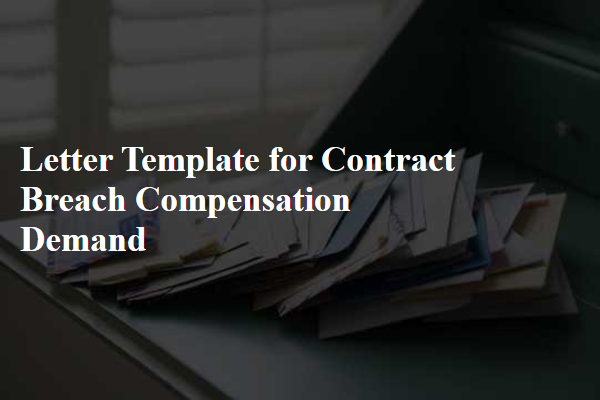
Contract Reference and Breach Details
Contract breaches often occur in various business agreements, leading to potential compensation claims. Breach details can include specific clauses violated, such as failure to deliver goods or services on time. For instance, a contract reference number (e.g., C123456) can denote a formal agreement between two parties, wherein one party (the vendor) failed to deliver essential materials (like steel or electronics) on the agreed-upon date. The parties involved typically include organizations or individuals operating within certain jurisdictions, such as New York or California. When seeking compensation, it's crucial to document all related incidents, including missed deadlines (e.g., the delivery was due on September 30, 2023) and any resulting financial losses (like increased project costs or penalties incurred). Specificity in these details strengthens the compensation demand's validity and effectiveness.
Legal Obligations and Terms Violated
The breach of contract can lead to significant financial losses and disruptions in business operations. In business agreements, such as service contracts or sales agreements, specific obligations must be met. Failure to comply with clauses like delivery timelines or quality specifications can result in damages. For instance, companies may seek compensation amounting to tens of thousands of dollars if a supplier fails to deliver materials on time, impacting production schedules. Legal standards define the extent of these obligations, with jurisdictions varying in their interpretation of contract terms. Documentation of the breach, including clear communication records and evidence of losses incurred, is crucial for supporting compensation claims in legal proceedings.
Evidence and Documentation
In a contract breach compensation demand, substantial evidence and documentation play a critical role. Comprehensive records such as the signed contract (binding agreement specifying obligations), communication logs (emails or letters detailing discussions relevant to the breach), and invoices (bills indicating financial transactions) must be included. Photographic evidence may illustrate the nature of damages incurred, while witness statements can corroborate claims of breach. Financial records (including profit and loss statements) demonstrating losses due to the breach are necessary for substantiating compensation amount. Properly organized documentation strengthens the demand, highlighting the breach's impact on business operations or personal circumstances.
Compensation and Remedies Sought
A contract breach can create significant financial strain and legal implications for the affected party. Seeking compensation typically involves quantifying losses, which may include direct damages (specific dollar amount lost), consequential damages (additional losses incurred due to the breach), and incidental damages (costs related to the breach, such as legal fees). It is crucial to reference the original contract (date, parties involved, specific clauses related to breach and remedies) that outlines obligations and remedies available. Documentation (financial records, correspondence regarding breach) must substantiate claims, detailing how the breach has resulted in economic harm. Negotiation may follow, potentially involving mediation or legal action depending on the other party's response to the compensation demand.
Deadline for Response and Legal Implications
In cases of contract breach, timely response is crucial for parties involved. A stipulated deadline, often 14 days from receiving the demand letter, establishes urgency for the breaching party to address the issue. Failure to respond within this timeframe may result in severe legal implications, including potential litigation costs, which can reach thousands of dollars. Relevant state laws, such as the Uniform Commercial Code (UCC) in the United States, may apply, outlining specific remedies for breach including compensatory damages, consequential damages, or specific performance. Proper documentation of the breach and any attempts at resolution strengthens the demand. Consulting with legal counsel is advised to understand rights and potential outcomes.
Letter Template For Contract Breach Compensation Demand Samples
Letter template of legal notice for compensation regarding contract breach
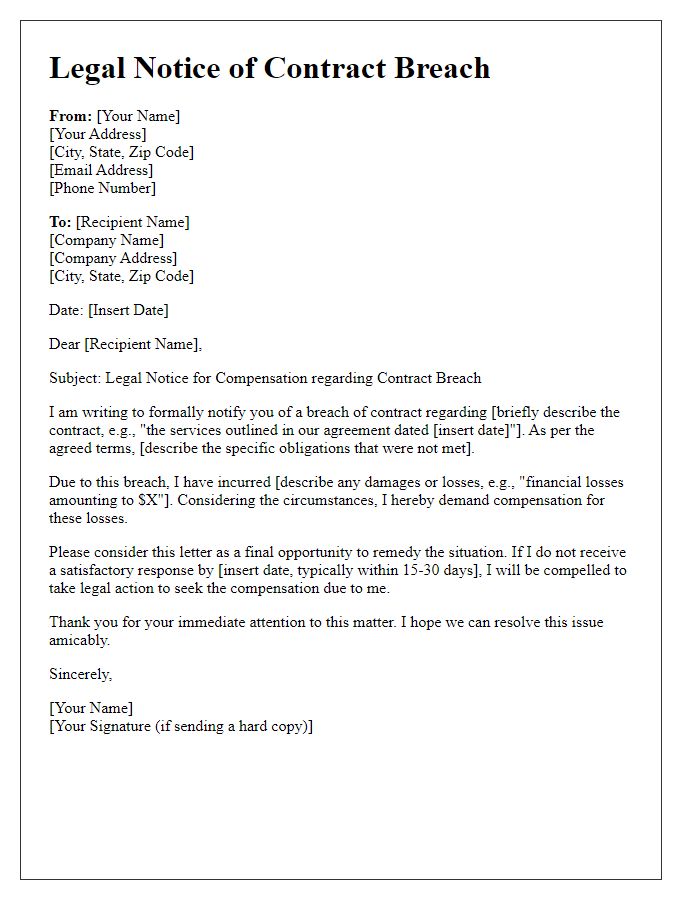

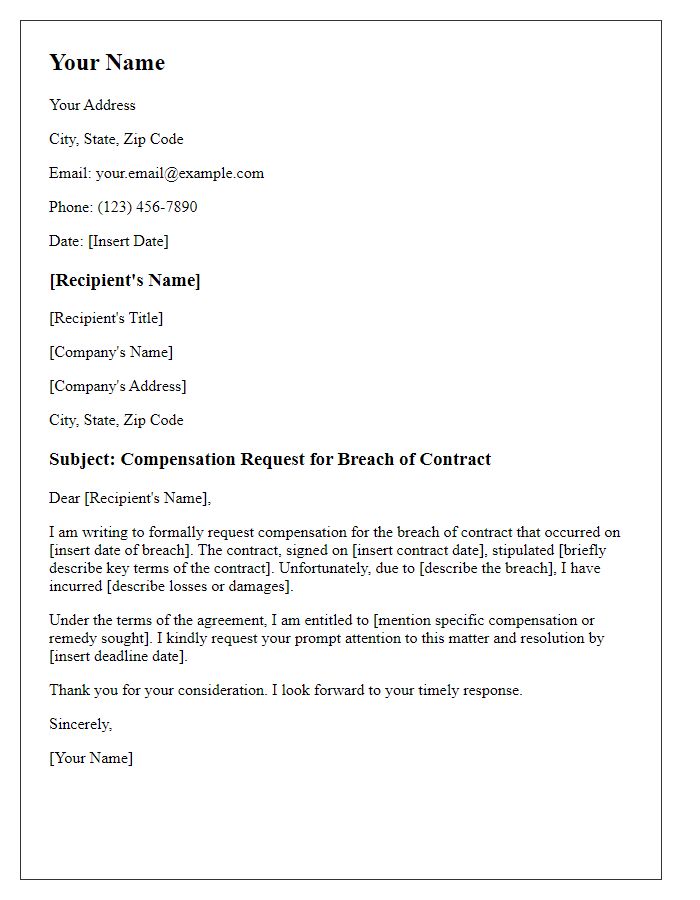
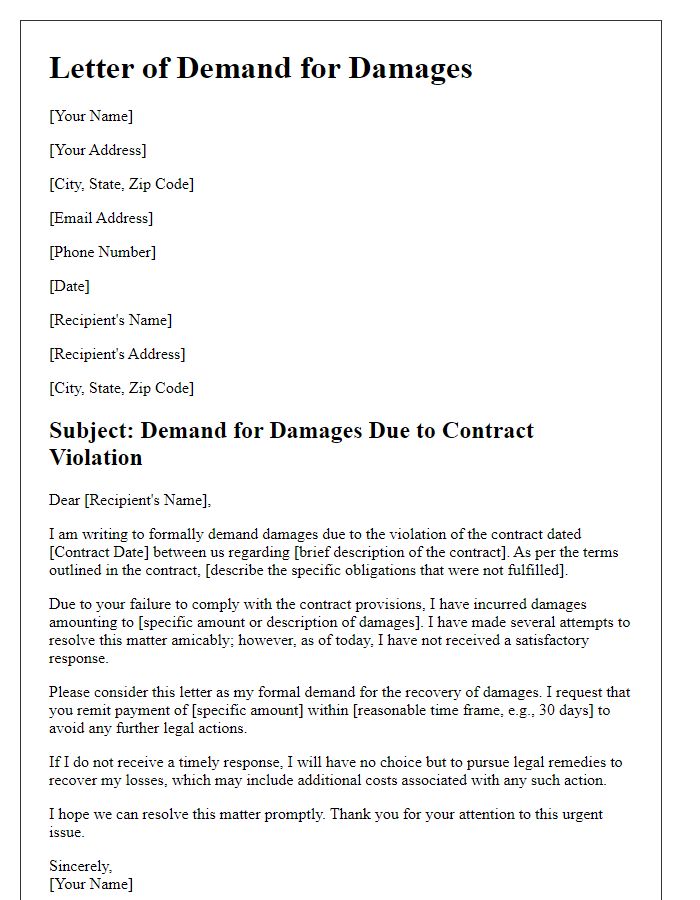
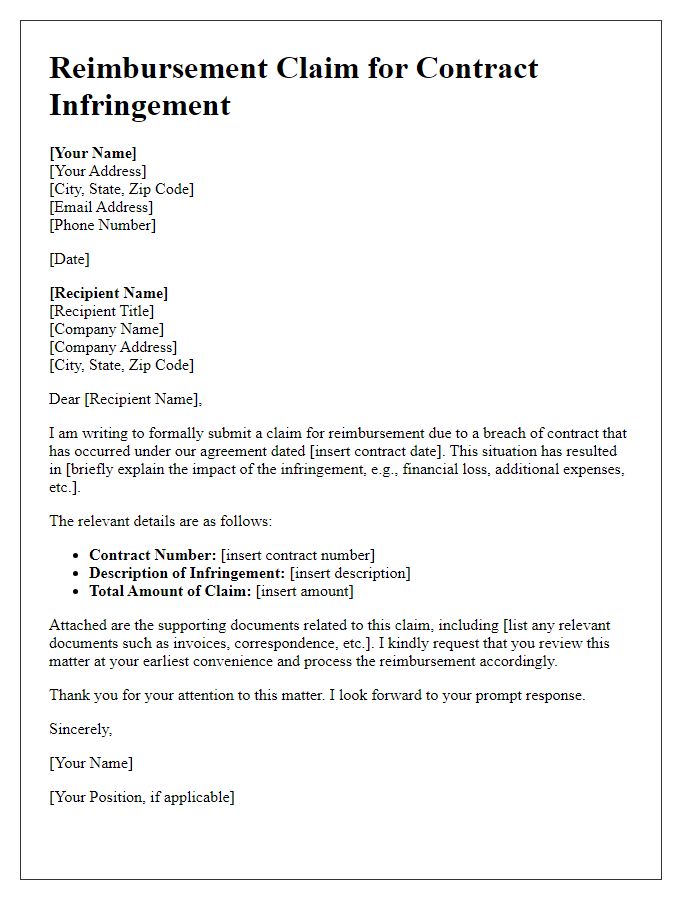
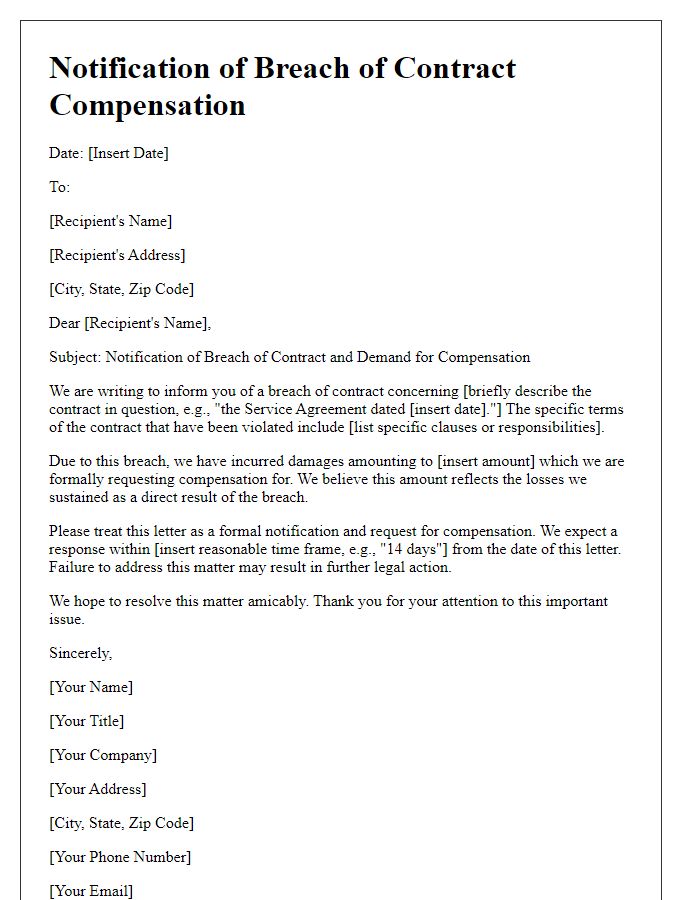
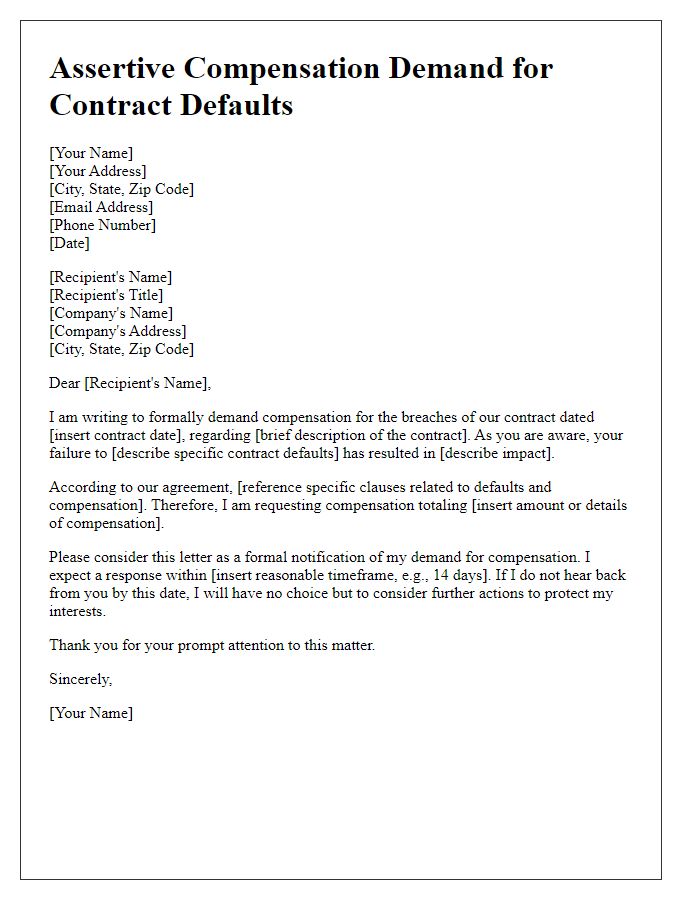
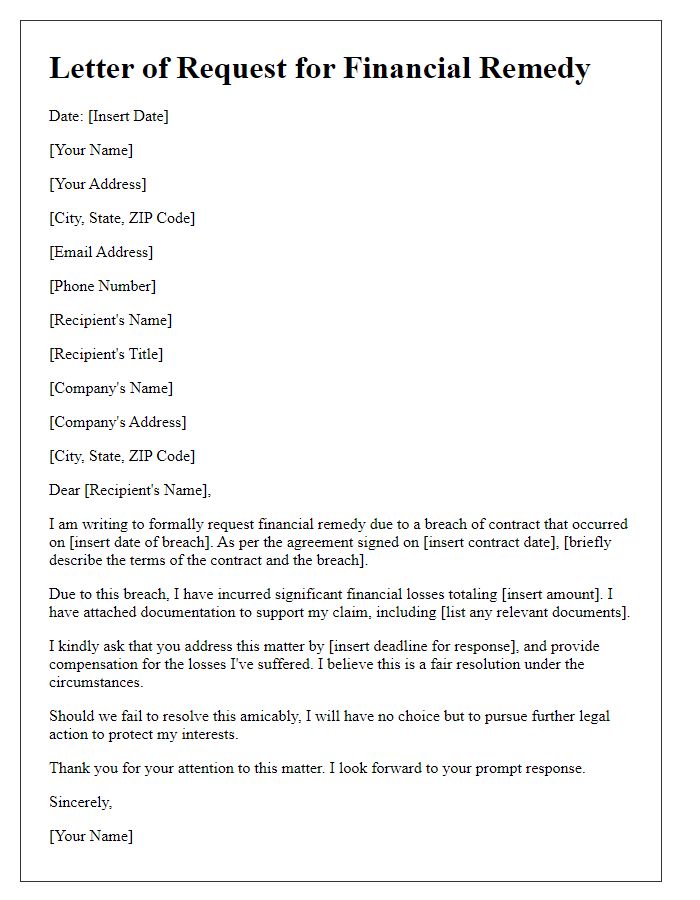
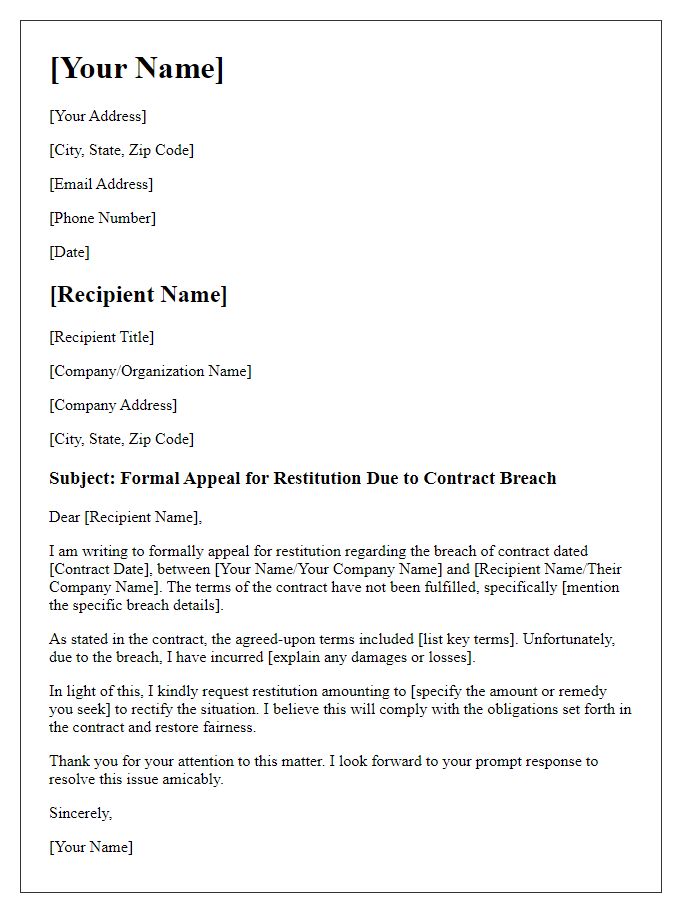
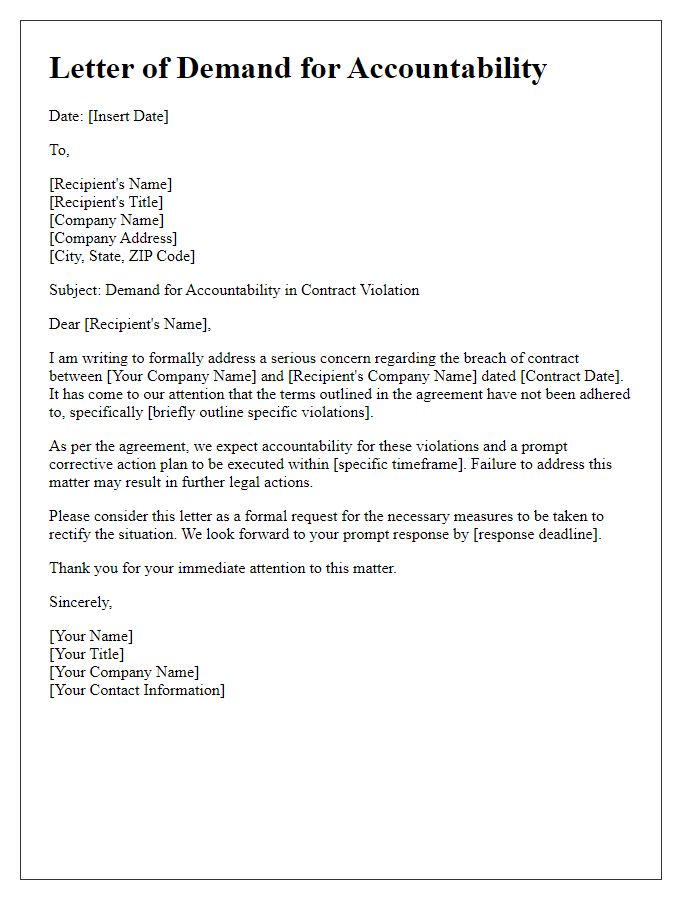
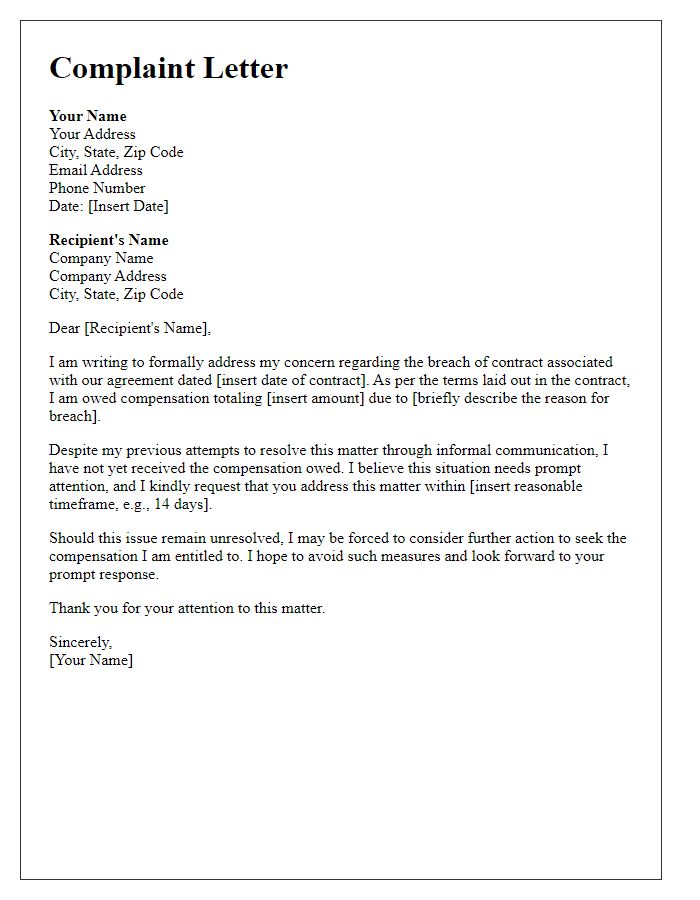

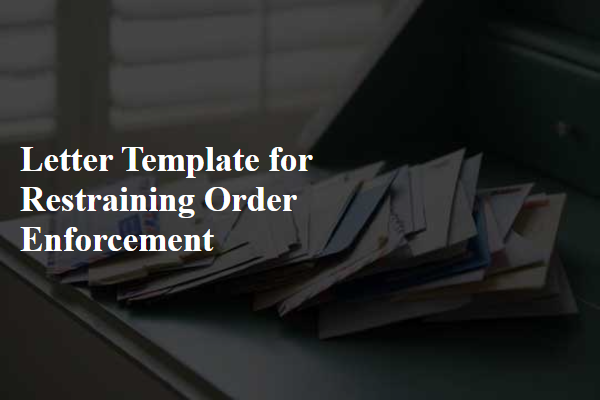
Comments